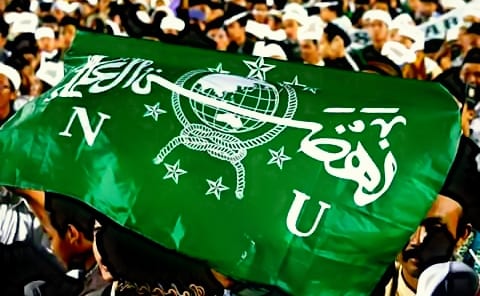
NU’s policy on ‘kafir’: Not new, but important
Azis Anwar Fachrudin – 18 March 2019
Muslims should not have been startled by Nahdlatul Ulama’s (NU) recent call for an end to addressing non-Muslims as kafir (infidels). This opinion, arising from NU’s Bahtsul Masa’il (forum for religious problems) at its recent national conference in West Java, is not new. However, it is significantly important for the current religious state of affairs in Indonesia.
Many Muslims disapproved or even condemned NU’s appeal; yet it does not concern the word kafir in its theological meaning, but rather its use in today’s social and national life. The accusation that NU wants to amend the Quran, which uses the word in many places, is simply a display of ignorance.
What NU was reviewing was the medieval fiqh (Islamic jurisprudence) discourse that recognized the category of kafir dhimmi, i.e. non-Muslims living in an Islamic state and entitled to the state’s obligatory protection in exchange for loyalty and payment of the specific per capita tax called jizya.
By paying jizya, non-Muslims during the caliphate era were given protection and exempted from military services, but had to accept some restrictions on their freedom of worship in the public domain, one which made them second-class citizens. Such a policy was not uncommon in medieval theocracies.
For NU, the concept of kafir dhimmi is no longer applicable in modern nation states, where all citizens are normatively equal regardless of their religion. This reasoning underpins NU’s proposal for the word muwatin (citizen) to replace it. Much earlier, the Ottoman caliphate passed a reform edict in 1858 which revoked the dhimmi status of non-Muslims living in its vast empire.
This idea had in fact long circulated within Indonesia’s progressive Muslim discourse early in the last decade, in discussions on the Egyptian prominent thinker Fahmi Huwaidi’s 1990 book Muwatinun, La Dhimmiyyun (Citizens, not dhimmi). Huwaidi’s critiques against the pre-modern fiqh should have been easily welcomed since they simply imply a confirmation of what has been already in practice by most Muslim-majority nation states, including Indonesia since its birth, in embracing the idea of equal citizenship.
What might feel new is NU’s urge not to use the word kafir to describe non-Muslims in public multireligious space. The word may be offensive to non-Muslims due to its theological meaning (in common understanding) of declaring its interlocutors deserving of hellfire for eternity. In the words of an NU intellectual, using the word ‘kafir’ to address non-Muslims may be tantamount to “theological violence”.
On this matter, NU’s fiqh argument, which is its Bahtsul Masa’il’s speciality, refers to the opinion of 16th century Hanafi jurist Ibn Najim, who stated that Muslims who addressed Jews as kafir were sinful if their addressees felt offended, making it tantamount to cursing or insulting (shatm).
The opinion has also been posed by today’s prominent Muslim cleric Yusuf al-Qaradawi, who is revered by Indonesian Muslims inspired by the Muslim Brotherhood movement but who have ironically opposed NU’s position on the kafir matter. Al-Qaradawi had made the exact same call as NU in his 2004 book in Arabic, Khitabuna al-Islamy fi Ashr al-‘Awlamah (Our Islamic Discourse in the Era of Globalization).
Al-Qaradawi states that the Quran largely addresses non-Muslims using words such as “O, human beings”, “O, children of Adam”, or “O, people of the Book”. There are only two occasions when the Quran addresses non-Muslims using the words “O, kafir”; one in a story of the afterlife and the other when facing the Meccan pagans who had persecuted Muslims during the early years of Muhammad’s prophethood.
Qaradawi then argues that the Quran teaches etiquette not to use the word kafir to address or in the presence of non-Muslims, especially if they might feel offended by being called such.
In the 21st century, the same position had also been posed by India’s major Muslim organization Jamiat Ulema-e-Hind when in 2009 it urged Muslims not to dub Hindus kafir, with the exact same reasoning as NU’s, on the inapplicability of the category kafir dhimmi in the modern era.
While the medieval fiqh discourse made only two categories of areas, i.e. dar al-Islam (the abode of Islam) and dar al-kufr (the abode of infidelity), the Indian Muslim organization referred to India as dar al-aman (the abode of safety/security). In the 1930s, NU had even already called the would-be Indonesia dar as-salam (the abode of peace).
All these suggest that mainstream Muslim intellectual discourse today has been increasingly critical of the applicability of several medieval Islamic jurisprudential concepts in the 21st century due to zeitgeist disparity. This is progress worthy of appreciation.
For today’s Indonesian context, that call by NU finds its important significance amid the increased lay Muslims’ awareness of the Quranic verse that may be interpreted as prohibiting the Muslim majority to be led by a non-Muslim, due to the massive 2016-2017 sectarian campaign of the Jakarta gubernatorial elections.
The popularization of this interpretation may erode Indonesia’s constitutional adoption of its equal citizenship concept, while the founding fathers had refused to include in the Constitution the provision that Indonesia’s president should be a Muslim.
Some may consider the appeal to stop calling non-Muslims kafir trivial, as hardly anyone would do so. But considering today’s situation in Indonesia, in which religion has played an increased role in shaping public discourse, NU’s attempt to give a theological grounding for equal citizenship deserves much support, not to mention the fact that it came from the largest Islamic organization in the world’s most populous Muslim country.
_____________
The writer, Azis Anwar Fachrudin, is a staff member of CRCS.
— This article was originally published at the Jakarta Post, 15 March 2019
